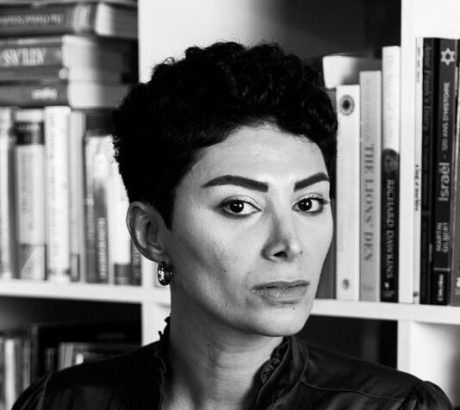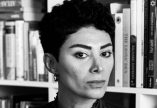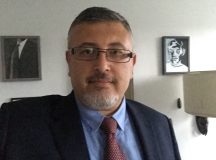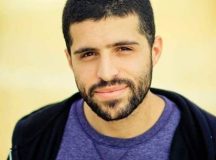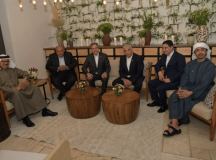In this impassioned opinion piece, Syrian-Lebanese peace activist Rawan Osman reflects on her journey from the antisemitism and unconditional anti-Israelism of her upbringing to her present recognition of Israelis as ‘belong[ing] in the Middle East, and… contribut[ing] greatly to our rich cultural heritage’. Championing the connections formed by the Abraham Accords, Osman calls for opposing the rejectionists who ‘lust for wars and romanticise bloodshed’.
The announcement of the Abraham Accords in 2020 left a bitter taste in the mouth of the champions of the Palestinian cause. Without reading the treaty, they considered it a treason. I suspect I would have reacted similarly had I not developed critical thinking later in life, away from the propaganda machine of the Axis of Resistance.
Before emigrating to Europe, I was, just like many of my Lebanese and Syrian friends and family members, an antisemite. I believed what our curriculum and media taught us about Jews and Israel. Where I grew up, unconditional blind support for the Palestinian cause was the natural and moral position to hold.
Having access to uncensored information in Europe opened my eyes. I realised that the enemies of the people in the Middle East were not Israel and the Jews. The real enemies are the leaders who feel entitled to my unconditional and blind support, which is neither natural if the other’s narrative is excluded, nor moral considering the ongoing suffering of the Palestinians resulting from this strategy of support.
The enemies of the people are the instigators of wars willing to sacrifice innocent life, be it Israeli, Palestinian, Syrian, Lebanese, Iraqi, Yemenite, or any life for the sake of spreading their ideology; those who continue to exploit the Arab-Israeli conflict to fuel their political power, all while continuously causing harm to all parties.
The late Syrian civil war and the systematic destruction of Lebanon, both inflicted by those leaders, compelled me to firmly stand against them. Reconstructing the bridges they burned is an ethical obligation if we want to avoid more senseless wars. But this is not an easy task. In the Arab and Muslim worlds, voicing advocacy of peace with Israel could cause anything between losing contact with family to a prison sentence. In Europe, peace advocates are safe from imprisonment but not from the stigma of betrayal. Those who shame them for letting down the Palestinians by accepting Israel’s existence are not only Arabs, but also European and Israeli activists working against Israeli interest.
I wanted to get to know the alleged enemy and ended up taking Jewish Studies at the university of Heidelberg, Germany. I discovered Jewish history, philosophy, religion, culture and diversity, often while studying and working with Israelis. Consequently, I lost friends and family members. They perceive me as a traitor which, to me, is an absurd claim.
My quest for truth is my due diligence if I want to make a sound judgement. When did seeking truth and peace become a betrayal?
Rejectionists introduced anti-normalisation laws forbidding contact with Israelis, knowing that their tales could not withstand proofing. Either we have been fed lies, or those who designed the laws consider their citizens too stupid compared to the Israelis who could upon a simple encounter manipulate our perception of the world.
Why is person-to-person contact between Arabs and Israelis strictly forbidden in several Arab countries? When we speak to Israelis, we realise that they are ordinary human beings. They are neither demons who control the world, nor angels who never sin. They are like us. This simple realisation makes it hard to wish death upon their children or to pledge unconditional and blind animosity against them. Furthermore, almost everything we were taught about them is dishonest and distorted, whether related to the Holocaust, to Jewish history and the foundation of the state of Israel, to the circumstances of wars between the Arabs and the Israelis, or their sentiments and intentions vis a vis their non-Jewish neighbours. One would think that at least their thoughts and emotions are best heard directly from them.
The essential fact I learned about the Jews is that they are indigenous to the historical land of their forefathers – a fact also mentioned in the Quran. They belong in the Middle East, and they contribute greatly to our rich cultural heritage. Neither are they guests nor aliens. They, too, are my people.
When I am accused of betraying my people, I respond by asking ‘who are my people?’
I come from the Middle East, specifically from the Levant. My father’s family are Sunnis from Damascus. My mother’s family are Shiites from a village near Baalbek, in the Lebanese Bekaa region. Through marriage, we have Christian and Druze family members. How could I identify only with one group when my family is mixed? And even though I am officially considered a Sunni Arab following my father, his family has no records in the Damascene register before 1938. Where did we come from? Considering our name ‘Osman’, we were possibly part of the Ottomans who were allowed to relocate in Damascus. Or we were Armenian refugees who converted to Islam, or Kurds fleeing from the North. We could also have been Jews who converted to Islam in the late 1930s considering that the family settled right outside the walls of Damascus. My grandmother told us nothing more than ‘we are not Arabs’.
As my grandparents passed away more than twenty years ago, and the situation in Syria is catastrophic, there is no way to know more about my origins. However, what I know is enough for me to accept that our identity is hybrid and complex and to embrace diversity as our greatest capital. So far, it led to conflict and rivalry, but it is time to change that miserable reality. We owe change to the coming generations.
A new reality starts with a clear decision based on a realistic and authentic vision of an optimal future for all our children. This reality started with the Abraham Accords.
The brave leaders of the UAE, Bahrain, Sudan and Morocco paved a new path, offering us an alternative to boycotts and violence. Shall we follow those who lust for wars and romanticise bloodshed, or those who are committed to a peaceful and prosperous future? In my opinion, the natural and moral choice is crystal clear, and I choose peace.

